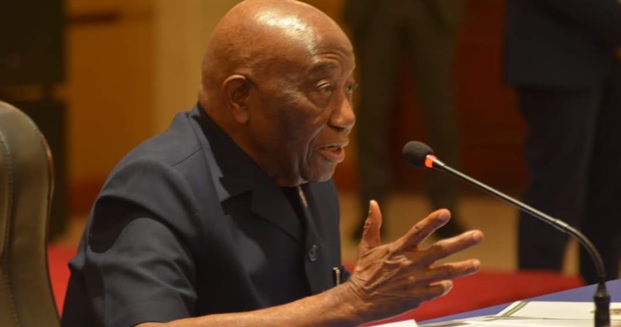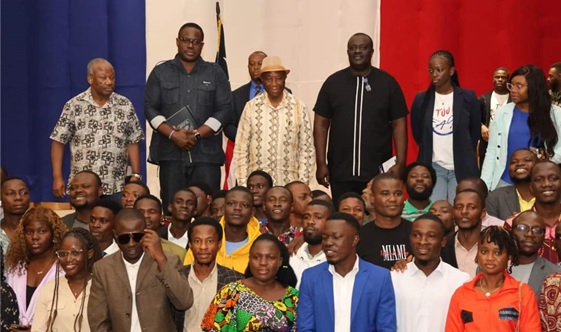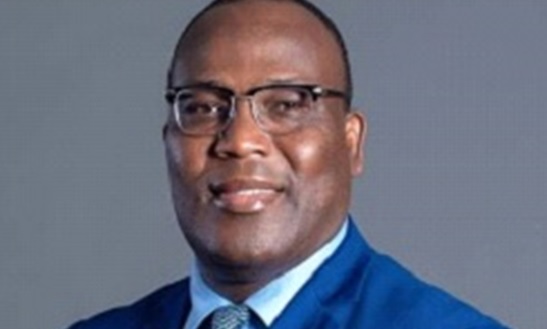MONROVIA – President Joseph Nyuma Boakai has formally launched the ARREST Agenda for Inclusive Development (AAID), including the Public Sector Investment Plan (PSIP) and the fifteen County Development Agendas (CDAs). This initiative was unveiled during a significant meeting of the National Steering Committee at the Ellen Johnson Ministerial Complex on July 18, 2024.
In his address, President Boakai emphasized the critical importance of collaboration with stakeholders to forge a unified vision for Liberia’s future. Crafting these plans requires engaging development partners and stakeholders to outline a strategic course for the country over the next five years. The President highlighted the necessity of comprehensive societal engagement to collectively determine the nation’s trajectory.
President Boakai reassured the Liberian people that his administration is devoted to elevating the country to new heights. He expressed a commitment to shaping the economy in a way that directly benefits ordinary citizens, particularly by investing in agriculture and other crucial sectors. His vision is to empower Liberians to achieve prosperity and financial independence, stating, “It’s time to see Liberians become millionaires through their investments.”
Acting Minister of Finance and Development Planning, Hon. Anthony G. Myers, shared details about the AAID, describing it as a comprehensive five-year strategy from 2025 to 2029. This plan includes a National Development Plan, a Sector Investment Plan (PSIP), and specific development agendas tailored for each of Liberia’s fifteen counties. Minister Myers emphasized the significance of the AAID National Steering Committee meeting in updating stakeholders on the planning process’s progress.
The Minister highlighted the importance of consolidating support from all stakeholders, including political backing, resource allocation, and technical expertise. The meeting aimed to outline the next steps in the agenda’s implementation, ensuring that all parties are aligned and committed to the plan’s success.
To facilitate effective planning and coordination, Minister Myers announced the engagement of two local consultancy firms to collaborate with Ministry of Finance and Development Planning (MFDP) technicians in formulating the AAID. Additionally, the procurement of four vehicles was planned to enhance coordination efforts at national and sub-national levels, improving communication and implementation efficiency.
Looking ahead, Minister Myers disclosed that sector engagements at the national level were scheduled to commence by July 19, 2024. Simultaneously, consultations at the county and district levels were set to begin on July 22, 2024, spanning a period of 25 days. These consultations are pivotal for gathering input and ensuring that the AAID reflects the diverse needs and aspirations of Liberian communities across the country.
United Nations Representative Dr. Peter-Lasuba Clement commended President Boakai for his exemplary leadership in advancing the ARREST Agenda for Inclusive Development (AAID) and its County Development Agendas (CDAs). Dr. Clement underscored the importance of these initiatives for fostering effective development cooperation and collaboration under the leadership of the Liberian government.
Dr. Clement emphasized the importance of mutual accountability among key stakeholders, including the Government of Liberia, the United Nations, Development Partners, and others. He stressed that interventions should benefit all Liberians, particularly the vulnerable and those in rural areas, while safeguarding against misuse of funds. Dr. Clement highlighted the significance of inclusive processes embedded in the AAID and CDAs, stressing principles such as diversity, equity, human rights integration, gender equality, women’s empowerment, social protection, youth employment, and nutrition. These principles, he noted, are essential for aligning Liberia’s aspirations with national strategies aimed at leaving no one behind.
The ARREST Agenda aims to strengthen local communities, support marginalized groups, reduce disparities, and promote equitable and sustainable development both at the county and national levels. This comprehensive approach seeks to ensure that Liberia’s growth is inclusive and benefits all citizens, setting a strong foundation for the nation’s future.







